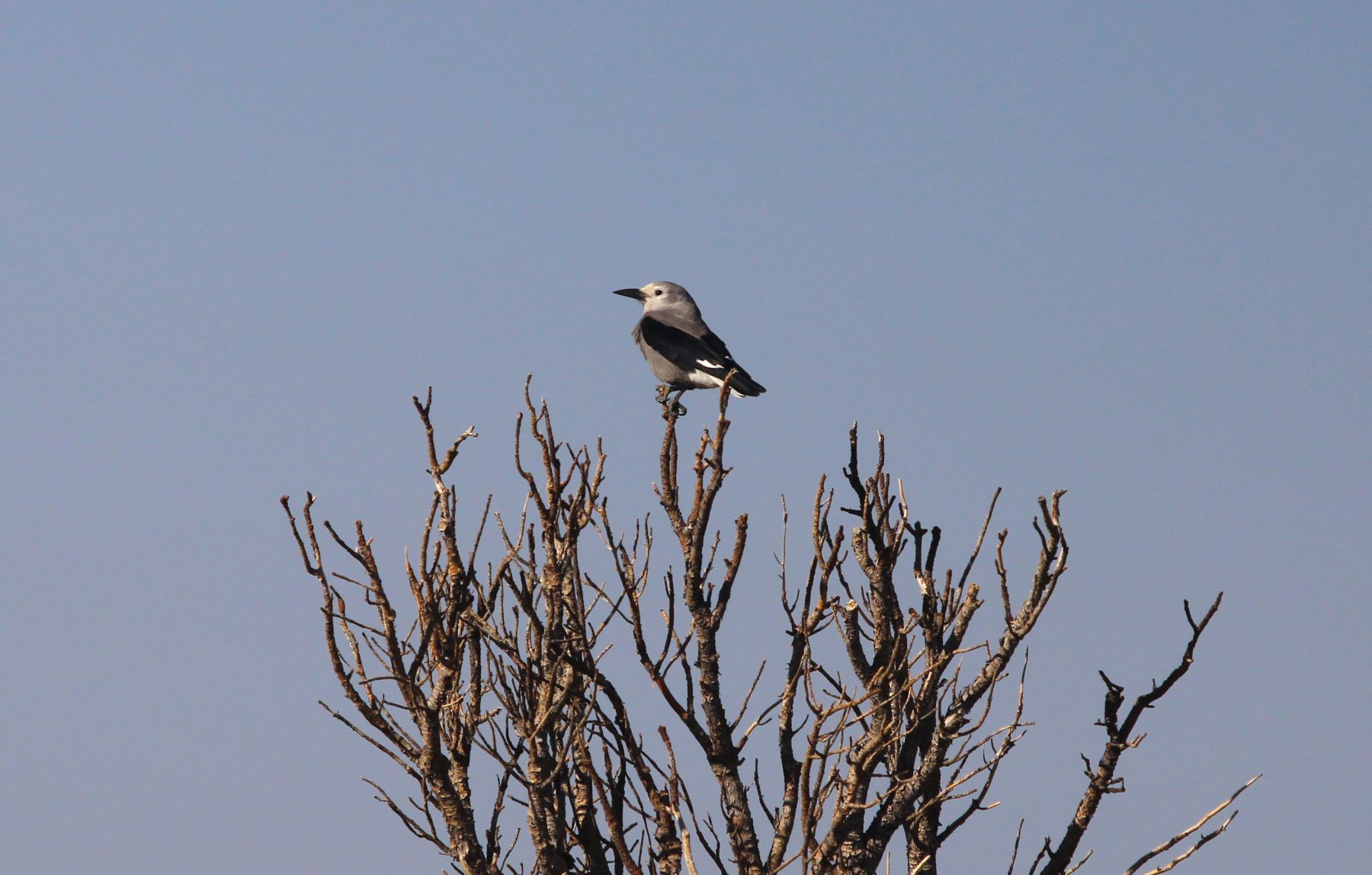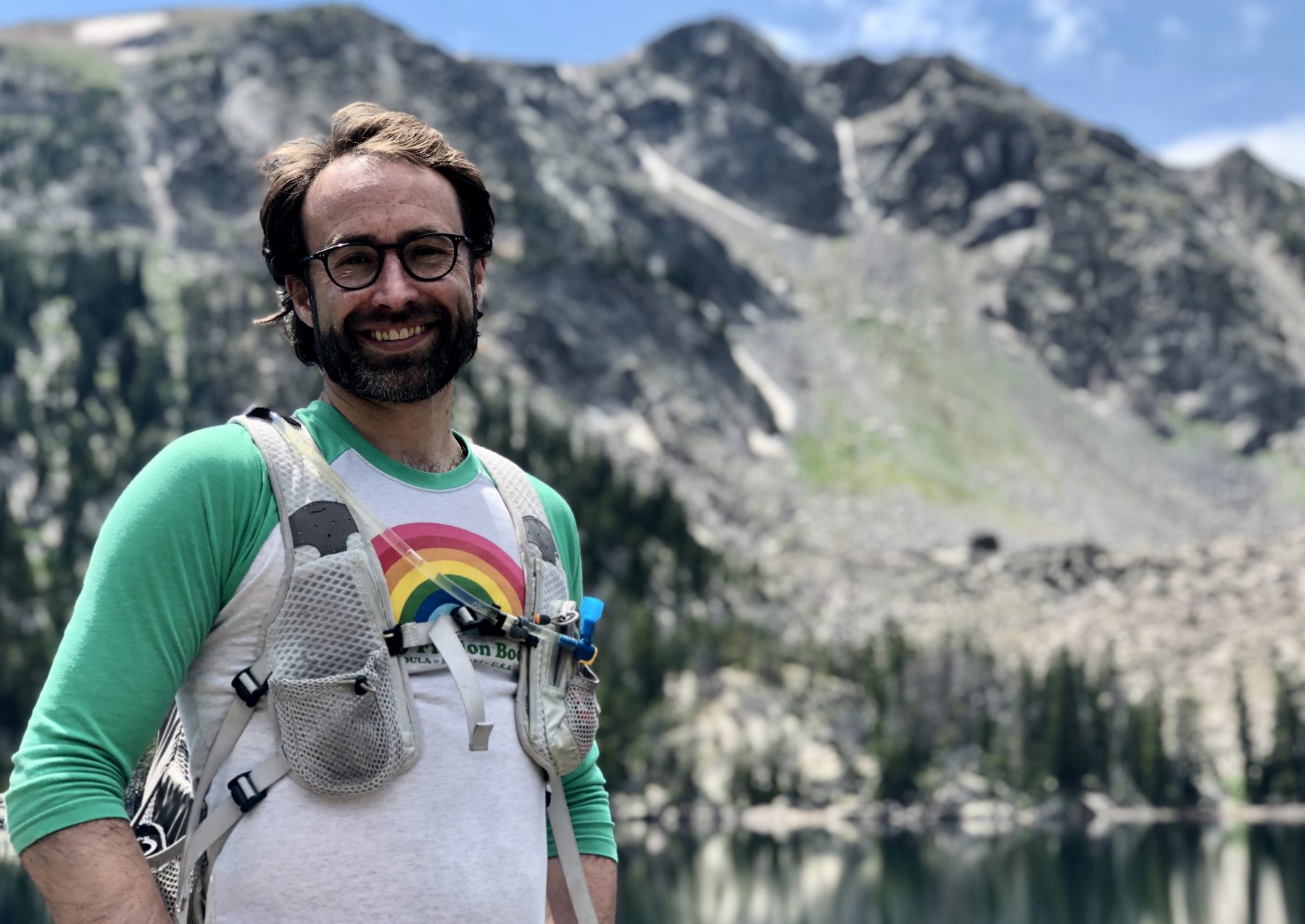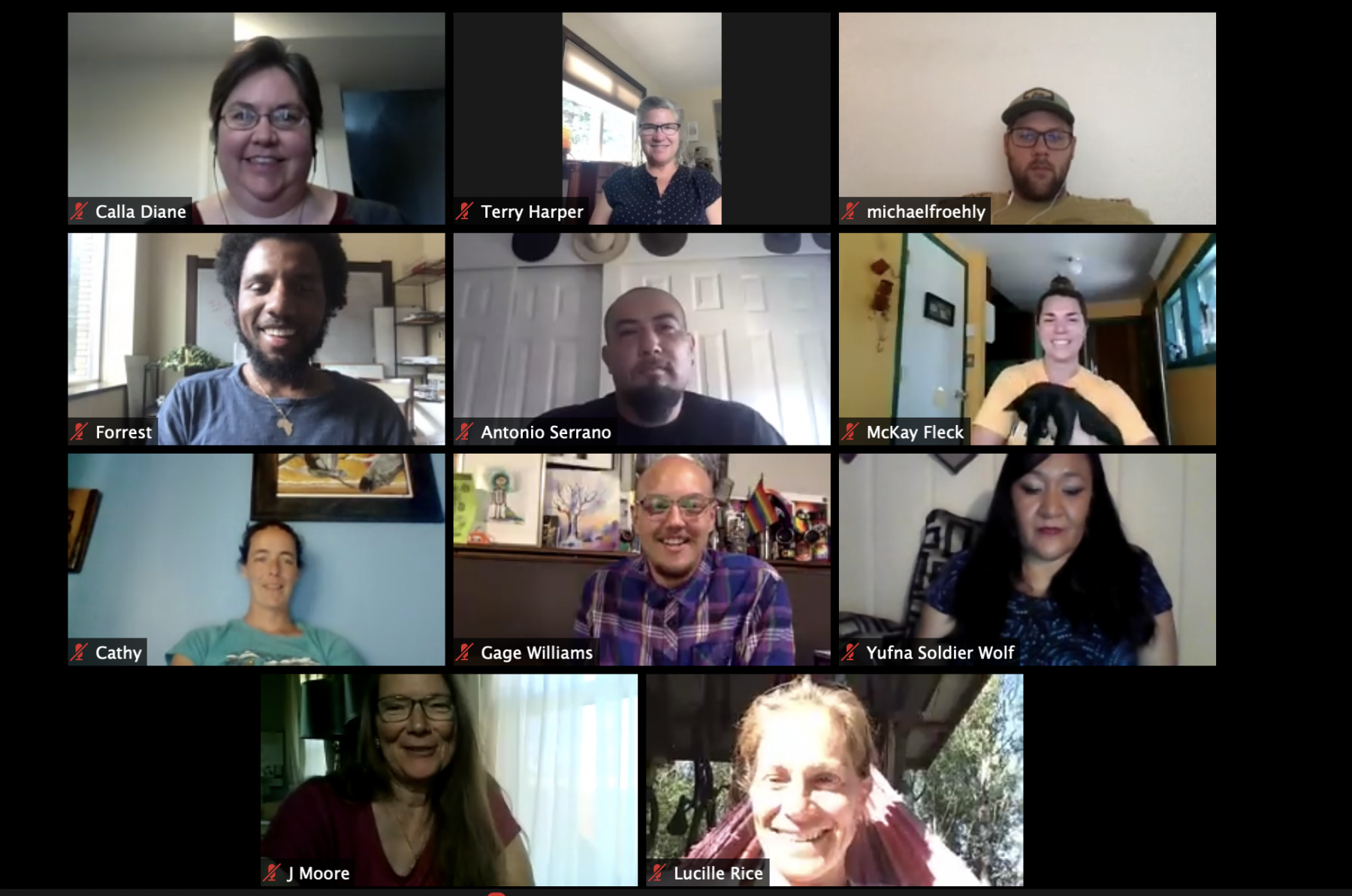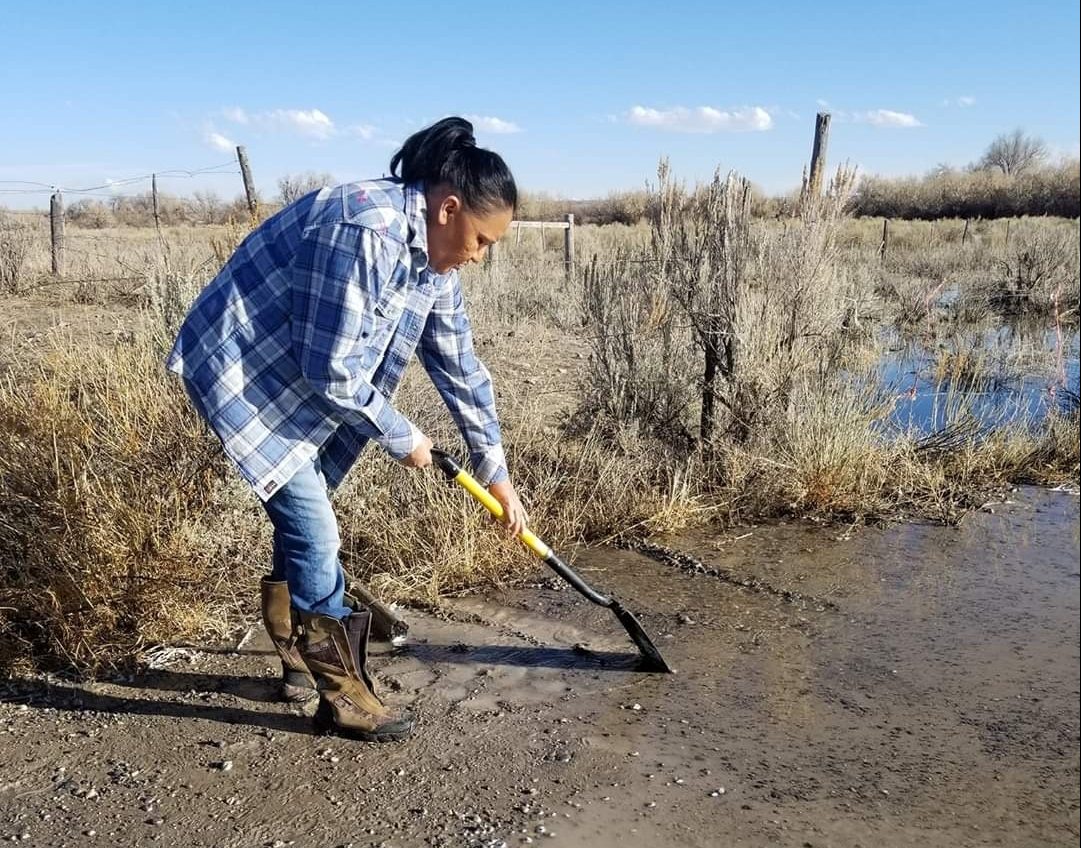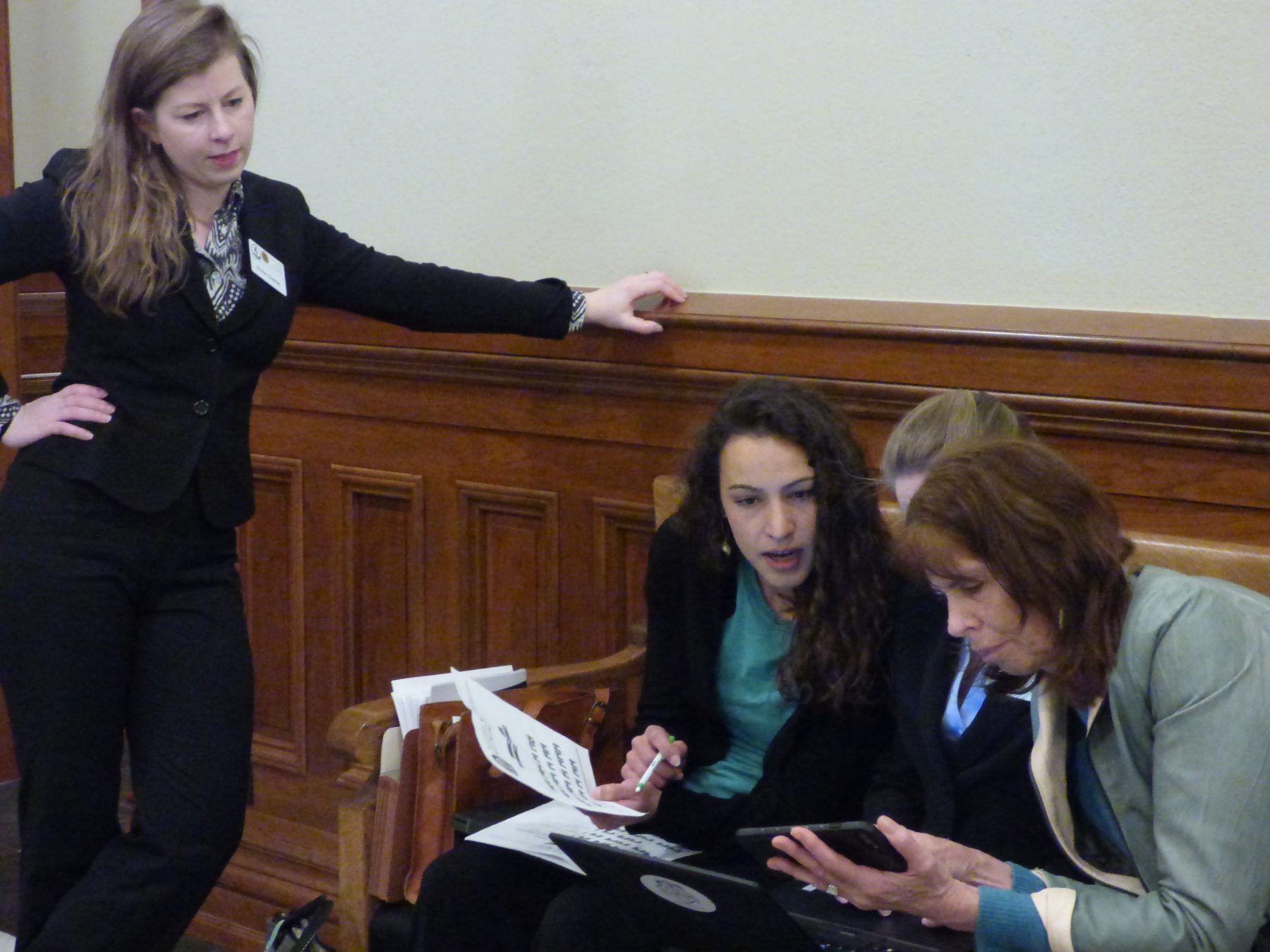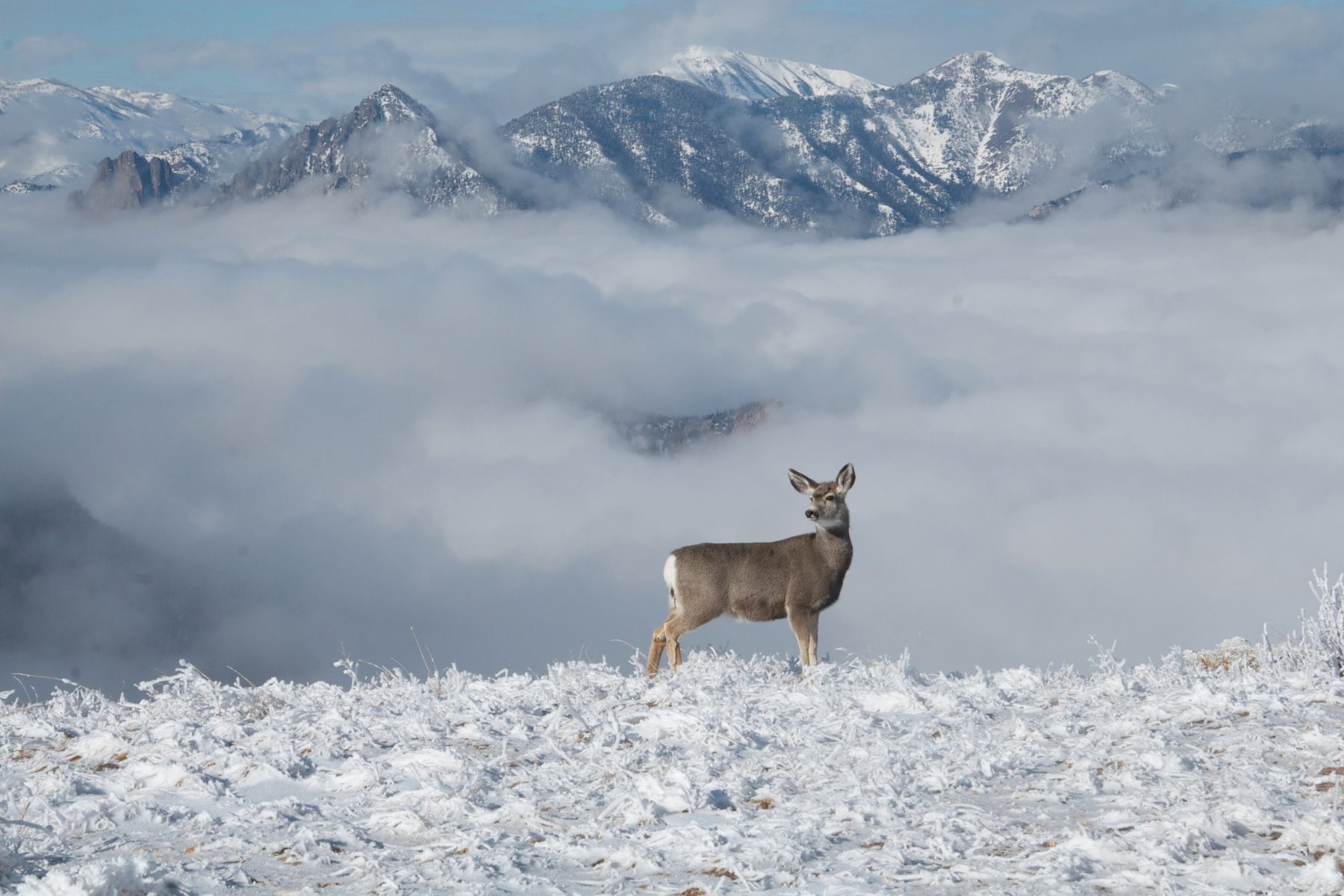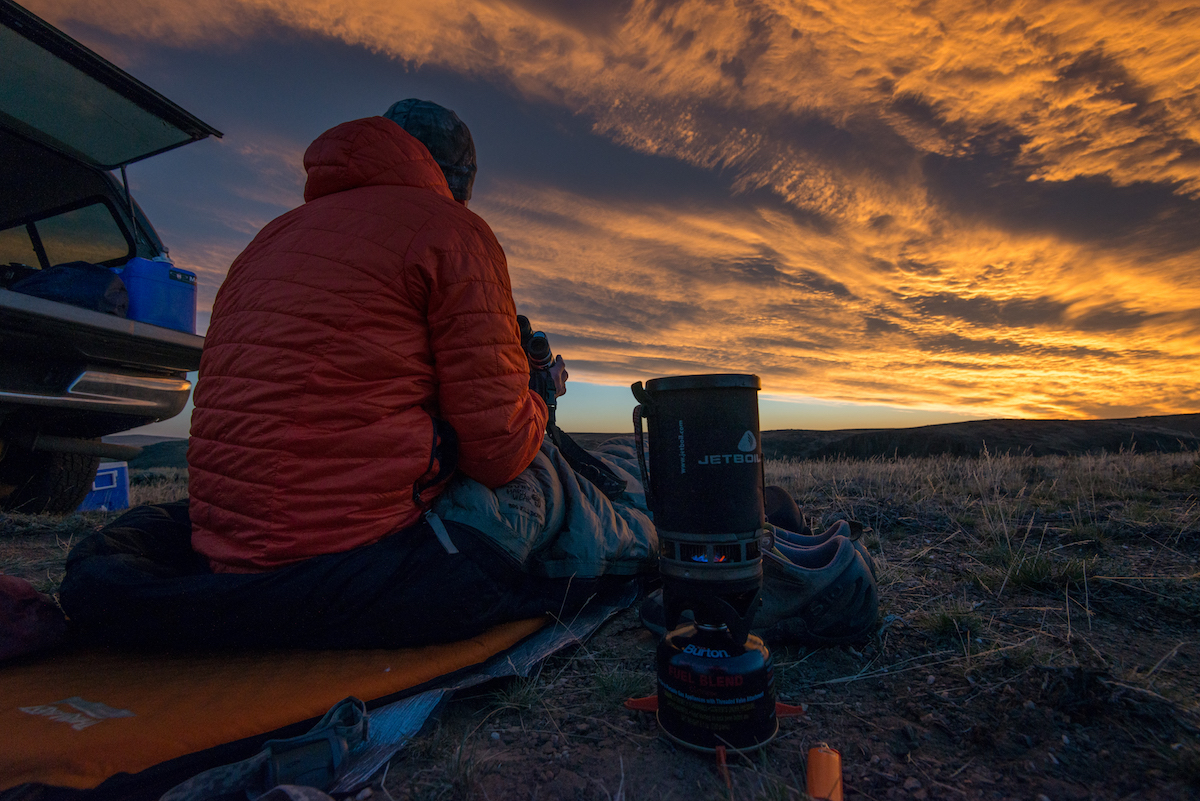This winter we were thrilled to bring Michael Kusiek into the fold as our new engagement director. In that capacity, he’ll work on building relationships with members, the public, and community organizations, as well as spearheading conservation efforts in the Red Desert. He most recently worked for the Outdoor Council on a contractual basis and has over 25 years of experience in health care education and public lands issues. He currently serves on the boards of the Lander Community Foundation and Wyoming Wildlife Federation.
Another welcome addition to the staff is Alexandria Beyer, a native of Wisconsin with a background in outdoor education. Before coming to the Outdoor Council she spent five years as a grant writer, a skill she’s now putting to use as our new development associate. She also worked as a canoe guide in Canada and as an outdoor educator in the San Juan Islands.
We took a few moments to ask them a little about their backgrounds, their experiences in the great outdoors, and what brought them to the Outdoor Council.
What do you love about the outdoors?
ALEXANDRIA: I love everything about the outdoors — that’s where I feel curious, connected, mystified, peaceful, rooted, and inspired. I feel held and supported in nature, no matter what the weather and no matter where I am. Nature is my wise teacher and honest companion. I just love everything about being outside.
MICHAEL: Growing up, my best friend’s home had the Black Hills National Forest as his backyard; we spent every day after school there. Since then I’ve always felt more at home in the woods than anywhere else. The smell of a lodgepole pine after it has been basking in the sun all day or of sagebrush after a good rain; the view of Wind River Peak when you finally top out on Roaring Fork Pass, and the beautiful cacophony of the Popo Agie River as it cuts through and rushes down Sinks Canyon — these things are what I love about the outdoors.
Any favorite memories?
ALEXANDRIA: I paddled with a group of youth for three summers in Lake of the Woods, Canada. There were crackling fires, loon songs, pelicans, miles of endless water, over 14,000 islands, gorgeous wild bogs, portages that tested every ounce of my strength, the sound of the paddle dipping and swinging through the water, beautiful outcroppings of granite, and swimming whenever we felt like it. It was just an incredible experience. And what’s more, I had the privilege of sharing this with a group of insightful and curious youth who were often experiencing these things for the very first time.
MICHAEL: Backcountry motorcycle tours are a wonderful way to see wide-open spaces. One of my favorite moments occurred while riding Yampa Bench Road between Craig, Colorado, and Dinosaur National Monument. I was riding through this rugged high desert with giant, sweeping vistas and suddenly, as I turned north, this shocking drop in the road was backlit with vermillion, grey, and white rock formations that came seemingly from out of nowhere. But honestly, every day and any day that I’m in the woods is packed with spectacular memories.
What drew you to conservation work, and to WOC in particular?
ALEXANDRIA: I’ve always sought work that brings people and conservation together. So when I moved to Lander earlier this year and learned that WOC was hiring, I was over the moon for the opportunity. I am grateful to wake up every day knowing that my time and energy are going toward conservation and public lands.
MICHAEL: In my opinion, the Wyoming Outdoor Council sits atop the list of conservation groups in Wyoming. Since discovering WOC in the pages of High Country News 20 years ago, it has been clear that WOC leads the charge in making sure Wyoming values live on. I want to contribute to the clean air and water, healthy wildlife, and beautiful landscapes that make Wyoming so wonderful.
What do you want to accomplish in the coming year?
ALEXANDRIA: Nature is home. As a writer, I have the ability to speak out for people who care about the outdoors, but the best way I can protect it is to inspire others to do the same.
MICHAEL: We are working on protecting important landscapes throughout Wyoming, in particular the Red Desert. I want to continue to foster awareness for this unique and quintessentially Wyoming place. I believe when folks see special places like the Red Desert, something inside them speaks to them, and almost encourages them to work to protect it. I want to create more moments like that for people.
Why are you excited about the future of conservation in Wyoming?
ALEXANDRIA: Change is a constant, but Wyomingites’ love for their state is also constant. Love and change are great allies in conservation. Undoubtedly, the future is bright.
MICHAEL: People in Wyoming have always cared about the core issues WOC works on every day — and I see more and more energy around protecting those values every day, too. Wyoming people from every background unite in their care for our state.

